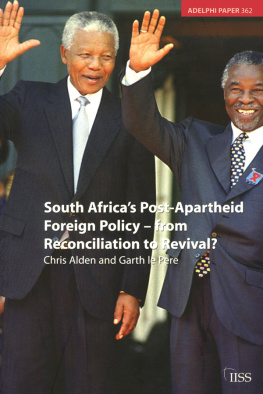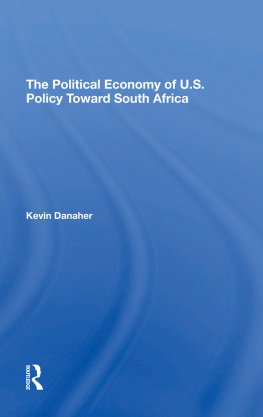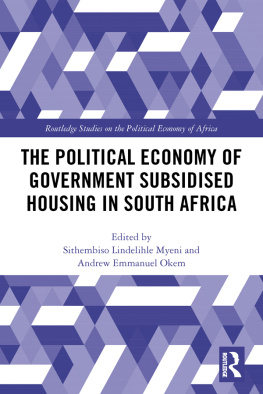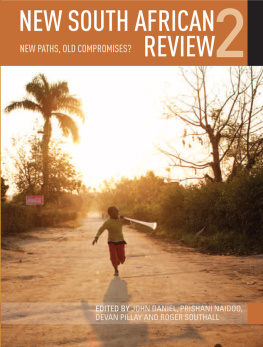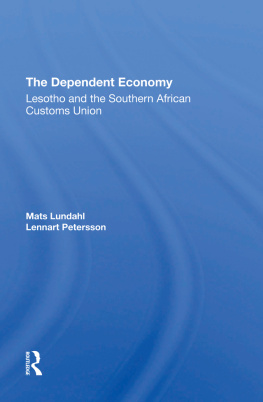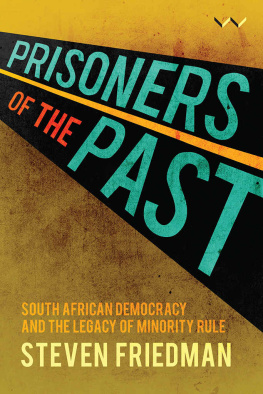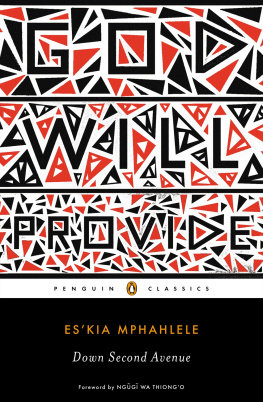GROWTH OR STAGNATION?
SOUTH AFRICA HEADING FOR THE YEAR 2000
The Making of Modern Africa
Series Editors: Abebe Zegeye and John Higginson
Environment, Health and Population Displacement
Andrew E. Collins
International Banking and Rural Development
Pade Badru
Structural Adjustment and Mass Poverty in Ghana
Kwabena Donkor
Contemporary Issues in Socio-economic Reform in Zambia
Edited by Herrick C. Mpuku and Ivan Zyuulu
The State and Organised Labour in Botswana
Monageng Mogalakwe
Small African Towns - between Rural Networks and Urban Hierarchies
Poul Ove Pedersen
Regional Cooperation and Integration within Industry and Trade in Southern Africa
Jens Haarlov
From Self-Help Housing to Sustainable Settlement
John Tait
Ominous Transition
Joye Bowman
Contemporary Issues in Regional Development Policy
Edited by Wilbert Gooneratne and Robert Obudho
Religious Militancy and Self-Assertion
Toyin Falola and Matthew Hassan Kukah
Growth or Stagnation? South Africa heading for the year 2000
MATS LUNDAHL
Stockholm School of Economics
First published 1999 by Ashgate Publishing
Reissued 2018 by Routledge
2 Park Square, Milton Park, Abingdon, Oxon, OX14 4RN
52 Vanderbilt Avenue, New York, NY 10017
Routledge is an imprint of the Taylor & Francis Group, an informa business
Copyright Mats Lundahl 1999
All rights reserved. No part of this book may be reprinted or reproduced or utilised in any form or by any electronic, mechanical, or other means, now known or hereafter invented, including photocopying and recording, or in any information storage or retrieval system, without permission in writing from the publishers.
Notice:
Product or corporate names may be trademarks or registered trademarks, and are used only for identification and explanation without intent to infringe.
Publishers Note
The publisher has gone to great lengths to ensure the quality of this reprint but points out that some imperfections in the original copies may be apparent.
Disclaimer
The publisher has made every effort to trace copyright holders and welcomes correspondence from those they have been unable to contact.
A Library of Congress record exists under LC control number:
ISBN 13: 978-0-367-02489-5 (hbk)
ISBN 13: 978-0-429-39925-1 (ebk)
Contents
Most of the essays contained in the present volume have been published as journal articles or book chapters. They are reprinted with the kind permission of the publishers. The provenance of the chapters is as follows:
: Intemationella Studier 1, 1995, pp. 4052 (translated from the Swedish). Reprinted with permission from Intemationella Studier, the Swedish Institute of International Affairs, Stockholm.
: Lars Jonung (ed.), Ekonomisk politik i omvandling. The Economic Research Institute, Stockholm School of Economics, Stockholm 1995, pp. 148158 (translated from the Swedish). Reprinted with permission from the Economic Research Institute, Stockholm School of Economics, Stockholm.
: Lennart Petersson (ed.), Post-Apartheid Southern Africa: Economic challenges and policies for the future. London and New York: Routledge, 1998, pp. 2143. Reprinted with permission from Routledge, London and New York.
: The South African Economy in 1996: From Reconstruction and Development to Growth, Employment and Redistribution. Macroeconomic Report, 1997:3, SIDA, Stockholm. Reprinted with permission from the Swedish International Development Cooperation Agency, Stockholm.
: Steve Kayizzi-Mugerwa (ed.), The African Economy: Policy, institutions and the future. London and New York: Routledge, 1999, pp. 213232. Reprinted with permission from Routledge, London and New York.
The essays collected in the present volume derive from an interest in South Africa and its economy which goes back to the early 1970s, when I wrote my first piece on the economics of discrimination. This later resulted in a book on that subject, with applications fetched from South Africa, as well as in a number of journal articles, later collected in book form. The second chapter of my South African story began in 1990 with the writing of a series of macroeconomic reports for the Swedish International Development Authority (SIDA), most of them together with Lena Moritz. This effort culminated in a book in Swedish, published in 1996.
The present pieces have all been written between 1994 and 1999. With the exception of the first, and most recent, chapter, they are presented here in the chronological writing order. The idea is that, to some extent, this should make it possible to follow how the debate on the South African economy has evolved since the fall of the apartheid regime.
have been written together with Lena Moritz - the latest products in a very fruitful and pleasant cooperation, but hopefully not the last ones. Lena has given her kind permission to let me reproduce them here. With a minimum of time at his disposal, Michael Pretes has checked the English of the newly written chapter and the chapters translated from the Swedish. Carin Blomkvist has prepared both the index and the camera-ready manuscript, after an incredibly short learning period, and besides, in her usual cheerful manner, spotted a number of inaccuracies in the references. To all three I extend my gratitude.
Stockholm, February 1999
Mats Lundahl
As South Africa approaches the next millennium, the countrys main problem is how to rid itself of the consequences of a legacy that has plagued it for almost 350 years: the legacy of race discrimination. Ever since their first arrival in southern Africa, the Europeans made it clear that the development they had in mind was one that paid little attention to the peoples who were there before them. As the subsequent history of South Africa amply demonstrates, the creation of an explicit apartheid ideology following the triumph of the National Party in the 1948 parliamentary elections was nothing but the culmination of a process that had begun centuries before.
With the passage of time, however, the apartheid system would become an anachronism increasingly out of touch with economic and social reality. Pressure would arise both inside South Africa and outside, on the international scene, to reform and eliminate it. This pressure existed even inside the National Party. Towards the end of the 1970s it was an open question whether the party would opt for reforms and, if so, to what extent.
It would take another decade before the decisive change took place. P.W. Botha had to leave and F.W. de Klerk take over before the road to democracy, majority rule, and equality between the races could be tread. At the beginning of the 1990s, however, the reform process gathered a strong momentum. The political scene underwent a complete change in a handful of years. Democratic elections were held in 1994, a Government of National Unity took over, and a new constitution was forged. Politically, the new South Africa has been a success. Negotiation and consensus solutions have driven confrontation out of the arena.
The economic picture, however, is entirely different. The number one demand on the new government has been to redress the racial inequalities that had accumulated for over three centuries, and especially those that were results of the Nationalist policy. This has proved to be a much more difficult process than that of laying the foundations for political democracy. In the wake of apartheid, South Africa emerged with a highly distorted economy in dire need of reforms, an economy which furthermore offered little scope for short-run redistribution. There are, however, no panaceas when it comes to growth, and the results so far have been disappointing. The rate of change of GDP has barely been high enough to outstrip population growth during the past several years and no change appears to be in sight.


